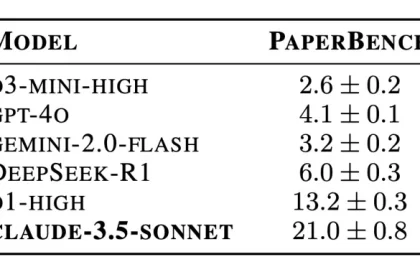You must have heard the warnings given by some leaders and senior managers in the field of robotics industry about artificial intelligence. These people have warned about the potential of this technology not for human advancement, but for human abuse and even extinction.
The New York Times says: “Some warn that artificial intelligence could become so powerful that it could cause societal-scale disruption within a few years if nothing is done to slow its progress. Of course, until today, researchers have not provided an explanation about how it happened.”
Recently, a group of industry experts warned that artificial intelligence could threaten human existence in a one-line open letter published by the non-profit organization Artificial intelligence safety center “Reducing the risk of human extinction through artificial intelligence should be a global priority alongside other societal-scale risks such as pandemics and nuclear war,” it said.
Alan Mathison Turing is known as the father of computer science and artificial intelligence, and the most important scientific award in the computer field is named after him, the Turing Award.
The statement was signed by more than 350 managers, researchers and engineers from the field of artificial intelligence, such as Sam Altman, CEO of OpenAI, as well as Jeffrey Hinton and Joshua Benjiu, two Turing Award winning researchers. The message is considered a prophecy, but it does not provide enough details about how the AI apocalypse will happen.
“One plausible scenario is that AI gets into the hands of dangerous people and uses it to create new bioweapons more lethal than natural pandemics,” said Dan Hendricks, director of the AI Safety Center. Or, instead of producing weapons, direct artificial intelligence to harm humans by performing various rebellious activities.”
Hendricks believes that if artificial intelligence is intelligent or powerful enough, it may pose a significant risk to society. Another risk is hackers using it for malicious activities. Eric Schmidt, the former CEO of Google, said in one of his speeches: “There are scenarios for the future where artificial intelligence is used in cyber issues as well as biology.”
Schmidt believes that this issue seems far-fetched at the moment, but the rapid development of artificial intelligence will make it more likely to happen. He says: “We need to be prepared for the day when this happens, so that we can prevent abuse by evil people with reliable methods.”
Another concern in this case is artificial intelligence going rogue. Journalist and science writer Tom Cheevers said in an interview: “Artificial intelligence built to get rid of cancer can learn to detonate nuclear missiles to destroy all cancer cells!”
“So the fear is not that artificial intelligence will be destructive, but the fear that it will be empowered,” he says. “Artificial intelligence tools only think about maximizing the result, and this thing takes it away from what we call humanity, and increases the possibility of terrible mistakes.”
Considering all these issues, these days the discussion of ways to regulate and control artificial intelligence has become very hot. A group of artificial intelligence experts, technology industry executives, and scientists have proposed to stop the competition for the development and deployment of powerful digital minds so that the development path of this technology does not get out of control.
They have said that the training of artificial intelligence systems should be stopped and the government should intervene in this matter. “To ensure that the development of superintelligence happens safely and smoothly and smoothly integrates with existing systems in society, everyone needs to be aligned,” Altman says.
The Associated Press says: “The US government is publicly weighing the possibilities and risks of artificial intelligence. CNN reported that Biden has spoken with technology CEOs about the importance of ethical and responsible development of artificial intelligence. In May, the White House of road map It provides for federal investment in research and development that promotes responsible innovation that serves the public good, protects people’s rights and safety, and upholds democratic values. “Also, the government has mentioned the possibility of regulating the artificial intelligence industry in the future.”
2,491,160
Toman

2,930,000
1,830,000
Toman
Source: theweek
RCO NEWS
















